Abstract
The clinical and pathology findings in 2 sibs with xeroderma pigmentosum (XDP), complicated by metastatic malignant melanoma which underwent spontaneous regression, are described. The pathology of one of these patients showed features of possible spontaneous regression, namely foamy histiocytes, capillary proliferation, and a chronic inflammatory infiltrate which was devoid of malignant cells, suggesting the possibility that an immunological mechanism was at work. It was of interest that a recent review of 27 cases of spontaneous regression of metastatic melanoma since 1900 contained a patient with XDP. Adding our 2 cases, at least 10% of the spontaneous regressions of metastatic melanoma occurred in patients with XDP. This unusual association raised the question that the genotype for XDP may possibly foster control of metastatic malignant melanoma in some as yet unknown way.
Full text
PDF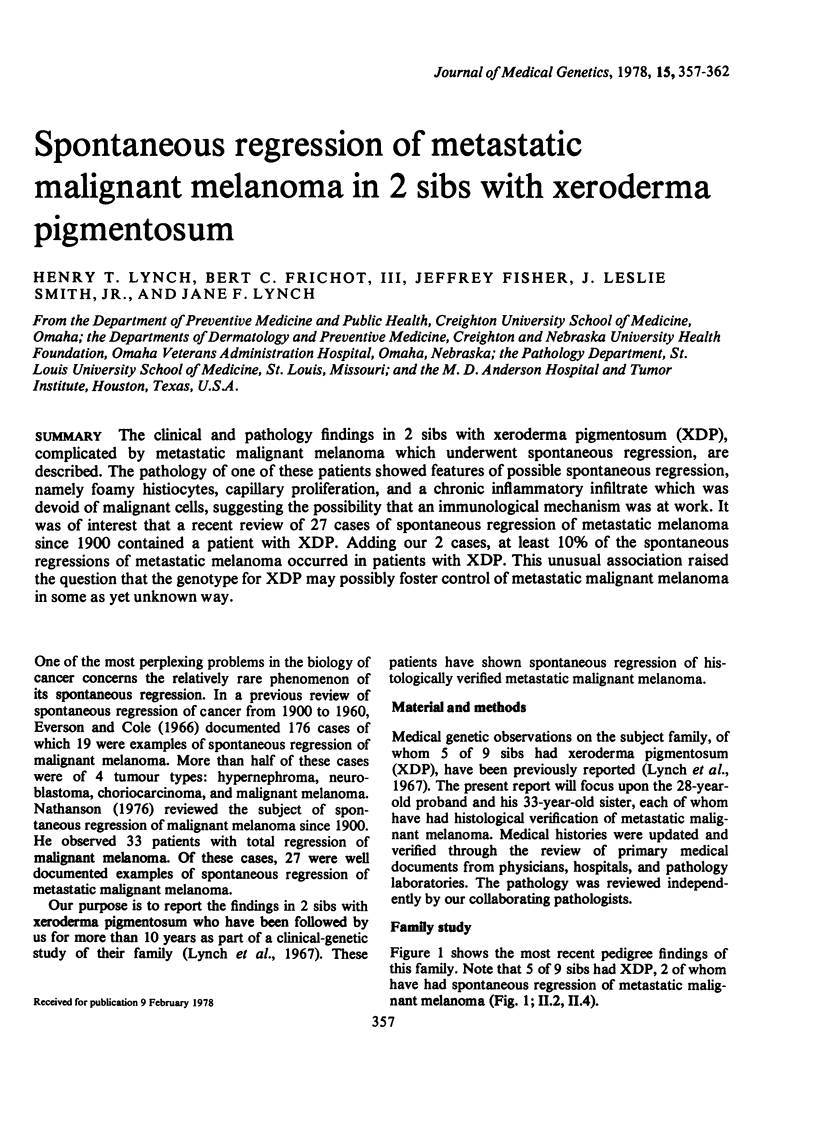
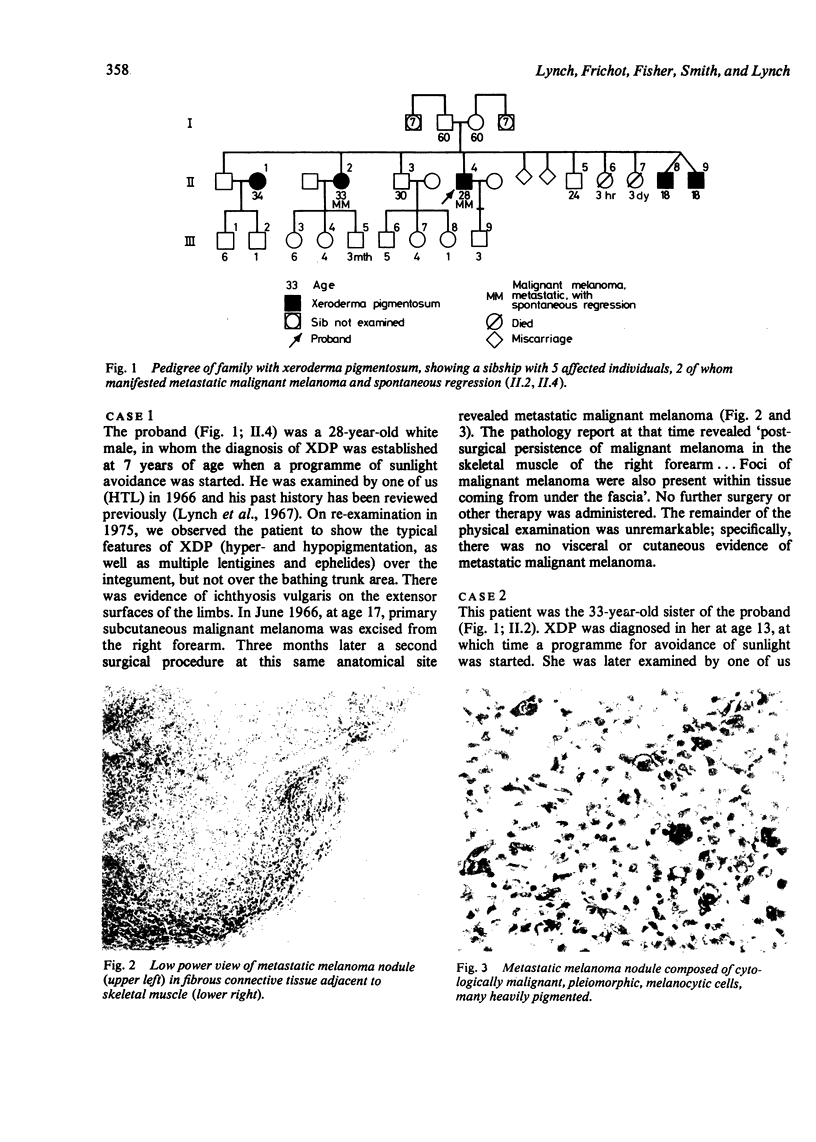
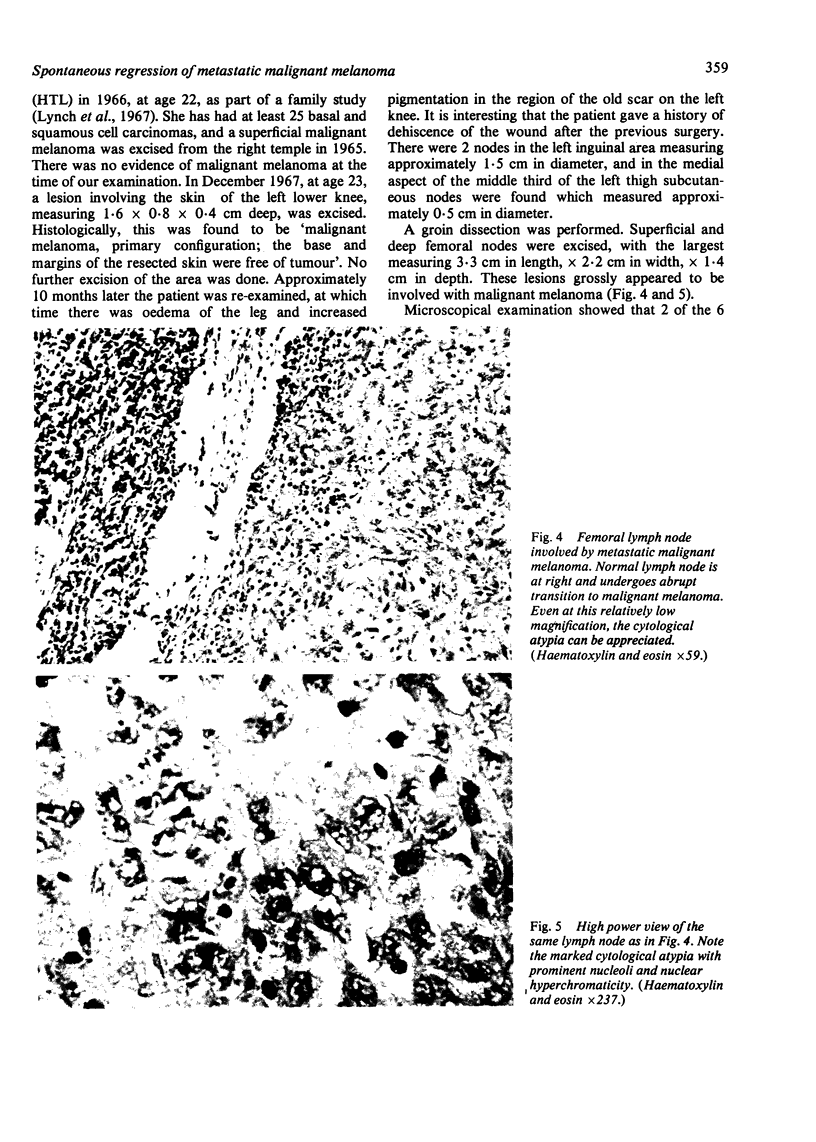
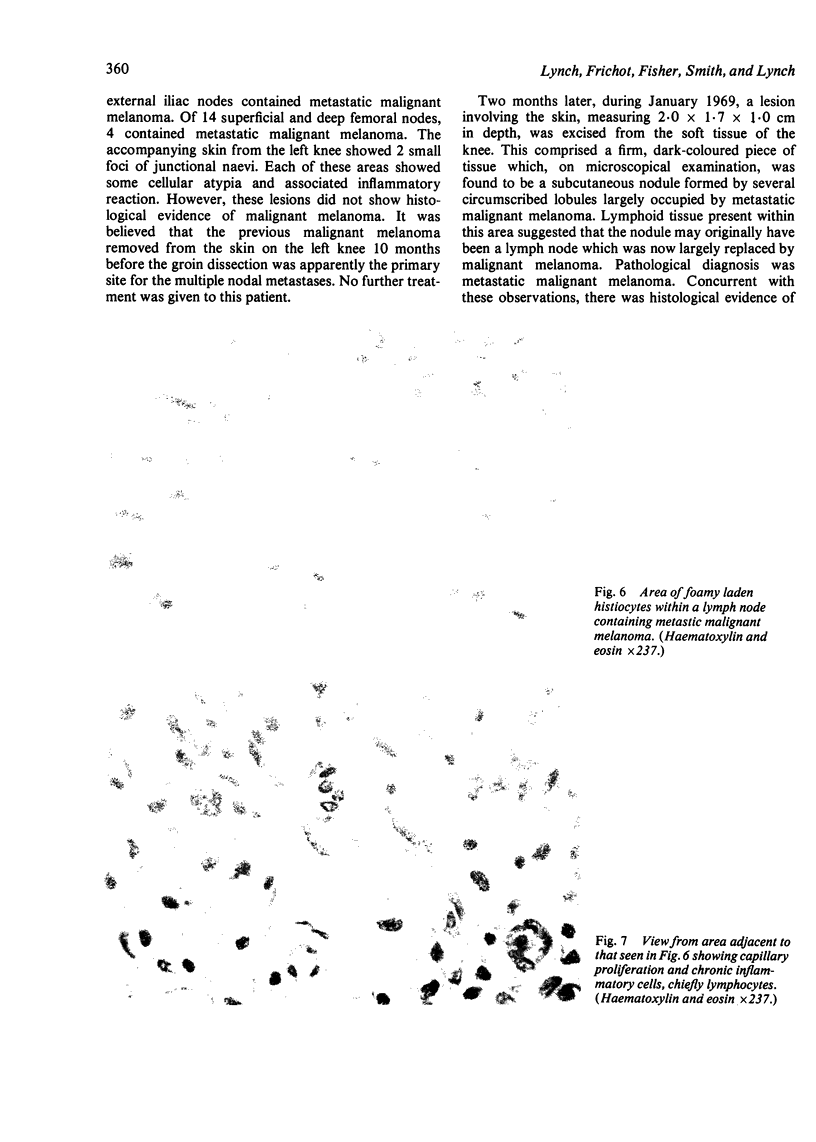
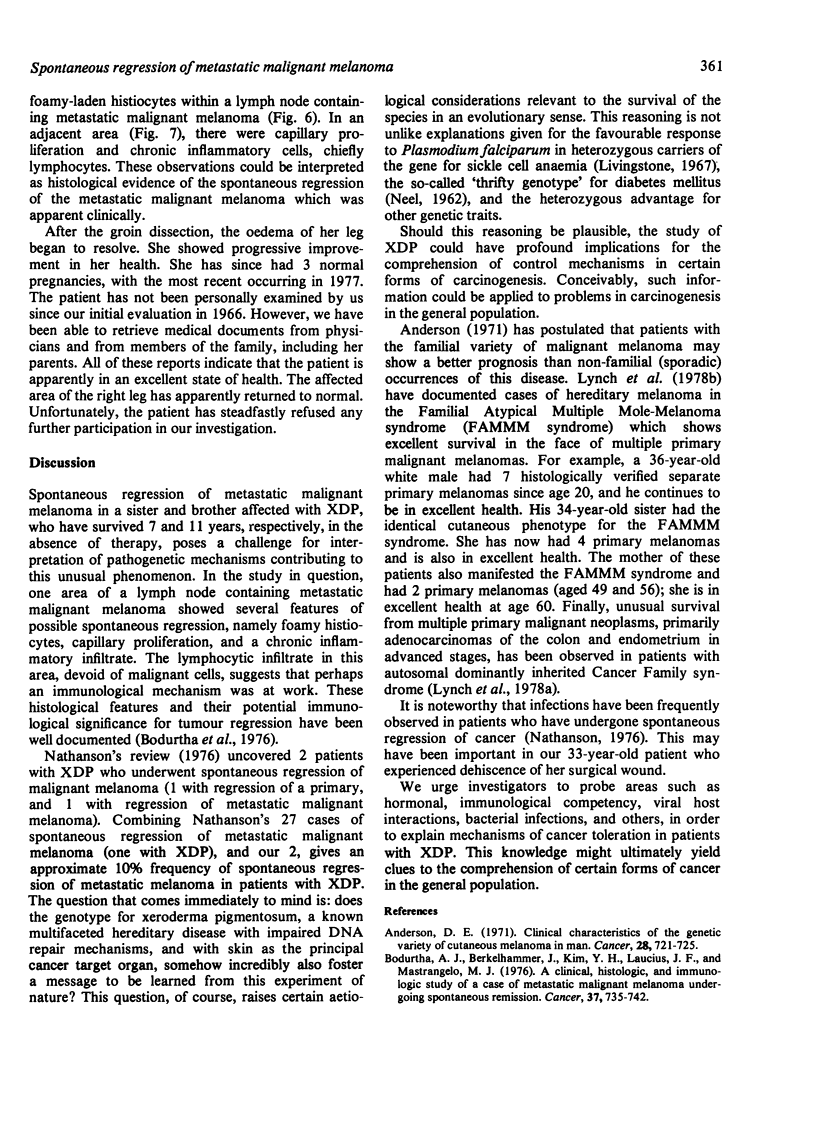

Images in this article
Selected References
These references are in PubMed. This may not be the complete list of references from this article.
- Anderson D. E. Clinical characteristics of the genetic variety of cutaneous melanoma in man. Cancer. 1971 Sep;28(3):721–725. doi: 10.1002/1097-0142(197109)28:3<721::aid-cncr2820280330>3.0.co;2-1. [DOI] [PubMed] [Google Scholar]
- Bodurtha A. J., Berkelhammer J., Kim Y. H., Laucius J. F., Mastrangelo M. J. A clinical histologic, and immunologic study of a case of metastatic malignant melanoma undergoing spontaneous remission. Cancer. 1976 Feb;37(2):735–742. doi: 10.1002/1097-0142(197602)37:2<735::aid-cncr2820370221>3.0.co;2-z. [DOI] [PubMed] [Google Scholar]
- Lynch H. T., Anderson D. E., Smith J. L., Jr, Howell J. B., Krush A. J. Xeroderma pigmentosum, malignant melanoma, and congenital ichthyosis. A family study. Arch Dermatol. 1967 Dec;96(6):625–635. [PubMed] [Google Scholar]
- Lynch H. T., Bardawil W. A., Harris R. E., Lynch P. M., Guirgis H. A., Lynch J. F. Multiple primary cancers and prolonged survival: familial colonic and endometrial cancers. Dis Colon Rectum. 1978 Apr;21(3):165–168. doi: 10.1007/BF02586560. [DOI] [PubMed] [Google Scholar]
- Lynch H. T., Frichot B. C., 3rd, Lynch J. F. Familial atypical multiple mole-melanoma syndrome. J Med Genet. 1978 Oct;15(5):352–356. doi: 10.1136/jmg.15.5.352. [DOI] [PMC free article] [PubMed] [Google Scholar]
- NEEL J. V. Diabetes mellitus: a "thrifty" genotype rendered detrimental by "progress"? Am J Hum Genet. 1962 Dec;14:353–362. [PMC free article] [PubMed] [Google Scholar]
- Nathanson Spontaneous regression of malignant melanoma: a review of the literature on incidence, clinical features, and possible mechanisms. Natl Cancer Inst Monogr. 1976 Nov;44:67–76. [PubMed] [Google Scholar]








